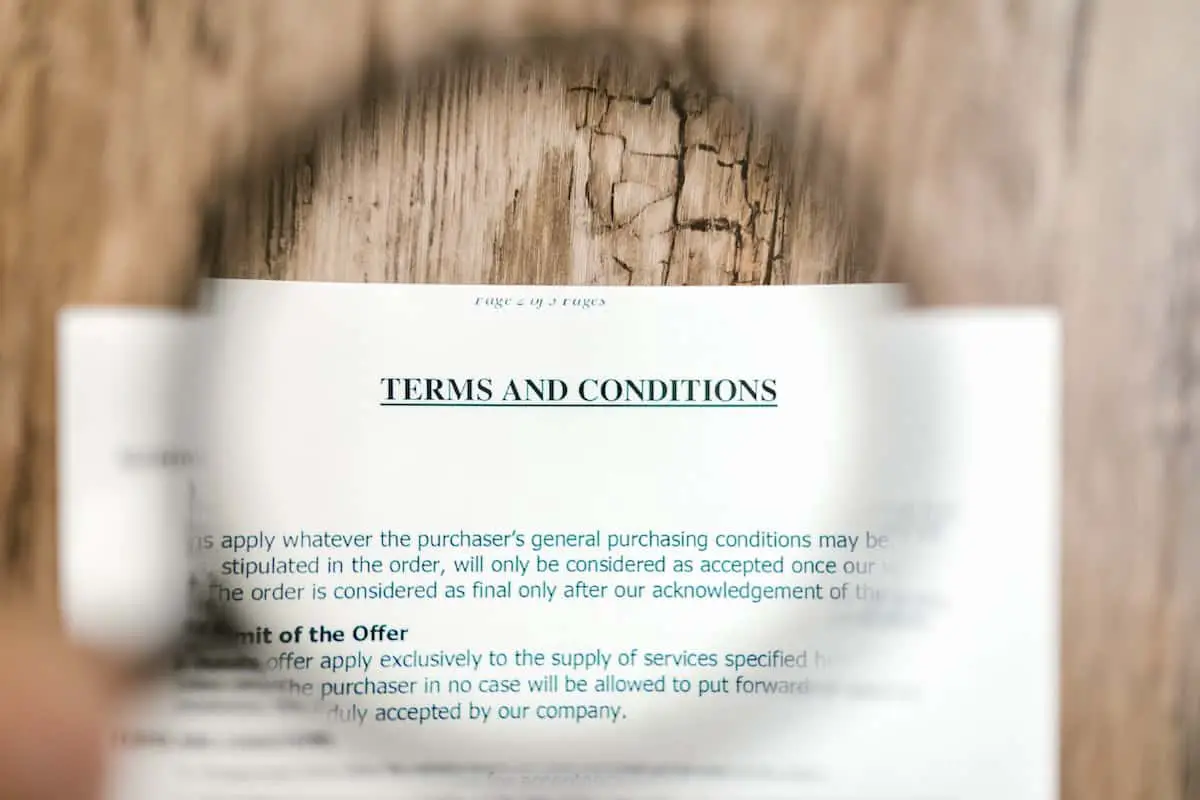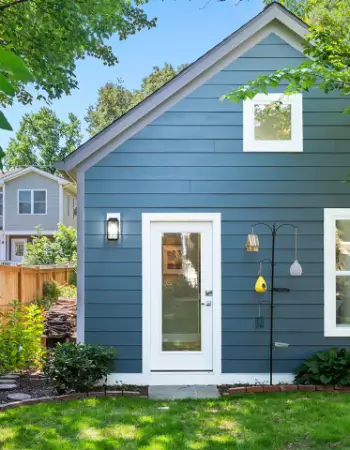As an owner of an already built modular home, in most states you are not required to disclose the fact that the house you are selling is modular. However, every State has their own disclosing requirements and it is important to always verify what is required by your local, state and federal laws.
Modular homes are built following the same building codes and permits required for any traditional stick built home, offering the same minimum requirements of safety and quality. Once built, the difference between modular and stick built remains in the type of construction alone and most states do not require to disclose this sort of information.
The most common information required in a Seller’s Disclosure:
- Health and Safety Hazards
- Material and water damage defects
- Location and neighbor related issues
- Psychologically affected property
- Property repair history
The purpose of a disclosure is to provide the seller with any details about the property’s conditions and defects. Even if the fact that the house you are selling is a modular home doesn’t negatively affect its value, there are some benefits in informing the buyer about the type of construction they are purchasing.
What should be disclosed before selling a modular home?
Some real estate agents might not be familiar with modular homes yet. To avoid any unnecessary disclosure disputes, it is recommended to hire a realtor who has experience with modular homes since failing to disclose important details about your property can lead the buyer to take legal actions [1].
A disclosure is a legal written document the seller has to present, where any details about the property’s conditions, especially those related to damages or potential issues need to be included. A disclosure is required per law and even if some requirements are defined in a federal level, most mandates fall under every state law [2]. Below we have listed the most common disclosure requirements required.
Health and Safety Hazards:
Any issue that could affect the health and safety of the occupants needs to be reported. The presence of toxic substances in the house or nearby the property such as contaminated soil or radon gas has to be revealed.
One of the most common disclosures in this area is the presence of mold. Even though in some states like Illinois the seller is not required to inform about the presence of mold [3], in other states such as California it isn’t only required to inform about its current presence but strongly recommend to keep notice of the presence of underlying moisture issues, water damage or mold odor [4].
The presence of Lead is an issue that is taken very seriously into consideration and its requirement to be disclosed is enforced in a Federal level. Lead affects mainly those homes built before 1978 since the usage of lead-based paint was common at the time [5] and every home built before that date should either carry an inspection to identify the presence of Lead or disclose the possibility of its existence.
Material defects and water damages:
It is the seller’s responsibility to disclose any possible material defects affecting the house. Material defects that need to be disclosed are usually major conditions such as plumbing issues, water damages, roof defects, HVAC system issues or foundation cracks [6]. The presence of any pests has to be disclosed as well; having termites, rodents or any other animal capable of causing damage in the house should always be revealed to the buyers [7].
Water damages are some of the most common disclosures since they cover an extensive variety of causes from plumbing leaks to floods which even if you have no control of, may cause damages to the property. Notifying about the property’s flood risk is recommended but only required per law in 29 states [8].
Every property is directly affected by its neighborhood and surroundings and therefore, any issues related to these factors should be disclosed. Inconveniences such as troublesome neighbors, unusual smells, loud noises or any incidents involving legal matters such as domestic violence have to be revealed before the purchase [9].
Any kind of legal issue regarding the properties locations or boundaries like disagreements with permits, land boundaries or square footage discrepancies; are required to be disclosed. Other matters of disclosure involve the property being placed nearby industrial or commercial buildings, in a historic district, or in a neighborhood subject to Home Owner’s Association (HOA) [10].
Psychologically affected property:
Some states require the seller to inform not only about any physical defects but also about the psychological impact the property might have on its occupants. California, Alaska and South Dakota ask the seller to notify if there has been any death in the house [11]. When selling a house that has experienced any issue related to crimes, homicides, shootings or illegal drugs; in some states it is required to disclose that this property is a psychologically affected property [12].
Property repair history:
While it is often required to notify about any defect that requires to be repaired in the future, it is also recommended to disclose any past reparations even if in most states it isn’t required by law.
Reparations such a fixing a roof that was leaking can cause future trouble if the leaking appears again soon after the house has been purchased [13]. Any reparation or remodeling projects done with or without permits might save future trouble by being disclosed.
Should you inform the buyer that the house is a modular home?
Even if in most states it isn’t required to disclose the fact that the house being sold is a modular home, informing the buyer of the type of construction might offer some benefits. The value of a well maintained modular home grows just as a regular home [14] so it shouldn’t negatively impact the sell.
Instead, the buyer might even be more interested in the purchase after knowing the house is a modular home since these type of constructions offers some advantages over traditional stick built. These are the main facts about modular homes that the buyer should know before the purchase:
- Modular homes are often built of a higher quality than traditional stick built homes: Being built off-site offers an environment that is protected from any weather events reducing material damages. Moreover, building in a factory-like environment ensure a stricter quality control during construction.
- Modular homes tend to offer a slightly stronger resistance in front of earthquakes and strong winds: Even if modular homes are built up to the same building codes as any other stick built house, having to transport every module from the factory to the building site ensures a stronger structure [15].
- If planning to remodel, the structure of the modular home needs to be taken into consideration: The structure of a modular home isn’t the same as a stick built home. Therefore, before pursuing any renovations it is important to be aware of the structural elements of the house.
References:
- Araj, V. (2022, February 15) Understanding Seller’s Disclosures Rocket Mortgage https://www.rocketmortgage.com/learn/sellers-disclosure
- Understanding Seller Disclosures for Real Estate Zillow https://www.zillow.com/sellers-guide/what-does-disclosure-mean/
- Mold Disclosure Illinois – Note Required for Realtors Law Offices of Lora Matthews Fausett P.C. https://www.fausettlaw.com/mold-disclosure-illinois-not-required-for-realtors/
- Leshnower, R. California Rules Regarding Mold in Rental Properties Nolo https://www.nolo.com/legal-encyclopedia/california-rules-regarding-mold-rental-properties.html
- Real Estate Disclosures about Potential Lead Hazards EPA United States Environmental Protection Agency https://www.epa.gov/lead/real-estate-disclosures-about-potential-lead-hazards
- Bray, I. (2021, August 10) Seller’s Legal Obligation to Disclose Hidden House Defects Lawyers.com https://www.lawyers.com/legal-info/real-estate/residential-real-estate/disclosing-hidden-house-defects.html
- Gadow, S. (2015, February 3) What home buyers need to know about seller disclosures The Washington Posthttps://www.washingtonpost.com/news/where-we-live/wp/2015/02/03/what-home-buyers-need-to-know-about-seller-disclosures/
- Learn about flood risk disclosure requirements and how they vary by state Flood Factor https://help.floodfactor.com/hc/en-us/articles/360049236793-Learn-about-flood-risk-disclosures-and-which-states-have-them-
- The Threat Next Door: Why Your Clients Need To Know About Bothersome Neighbors Before They Buy CRES A Gallagher Affinity Division https://www.cresinsurance.com/why-your-clients-need-to-know-about-bothersome-neighbors-before-they-buy/
- Bartsch, C. (2018, December 28) Don’t Forget! Disclose Those HOA Documents As Part of Your Home Sale HomeLight https://www.homelight.com/blog/hoa-documents/
- (2020, October 28) Are Sellers Required to Disclose That Their House Is Haunted? KRBHK Kious Rodgers Barger Holder King https://krbhk.com/are-sellers-required-to-disclose-that-their-house-is-haunted/
- Chretien, J. (2019, May 2) Psychologically Affected Property Disclosure in Indiana Real State Study.comhttps://study.com/academy/lesson/psychologically-affected-property-disclosure-in-indiana-real-estate.html
- When Do Past Repairs Become Defects To Be Disclosed? MetroTex Association of Realtors https://www.mymetrotex.com/when-do-past-repairs-become-defects-to-be-disclosed/
- (2020, November 20) Do Modular Homes Grow in Value the Same as Regular Homes? Rocky Mountain Base Camp https://rockymountainmodularhomes.com/modular-homes-value-vs-regular-homes/
- (2015, April 17) Modular Homes Provide Advantages in Severe Weather Supreme Modular https://www.suprememodular.com/residential-construction/new-jersey-modular-homes/modular-homes-provide-advantages-in-severe-weather/



